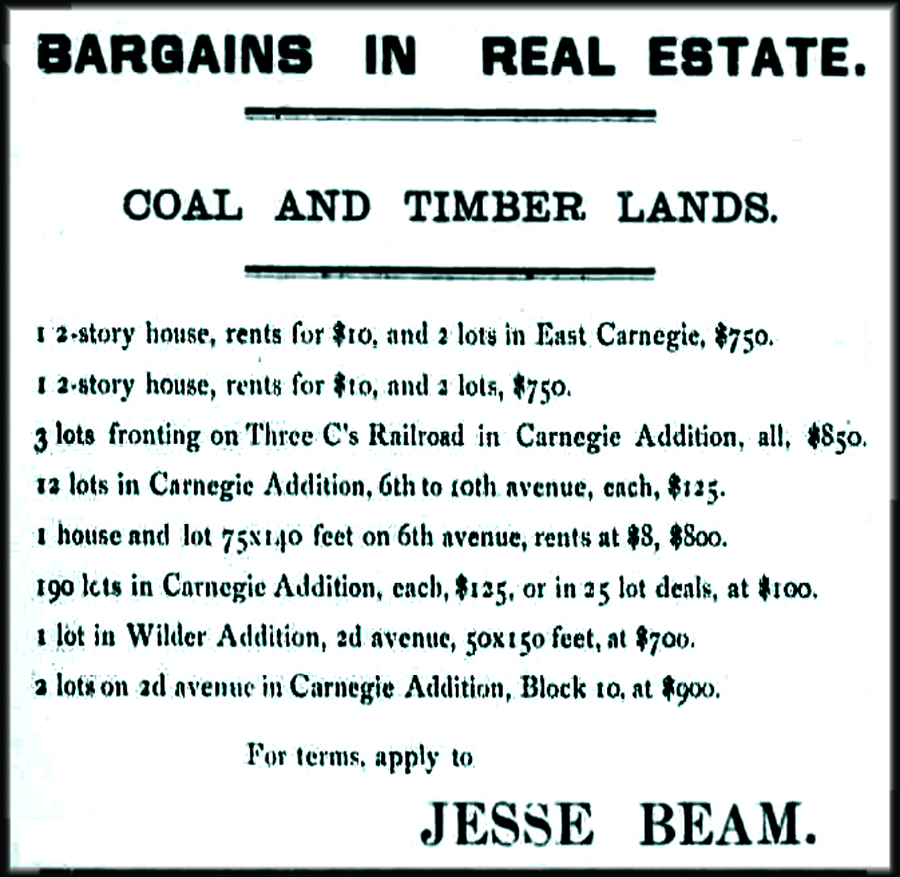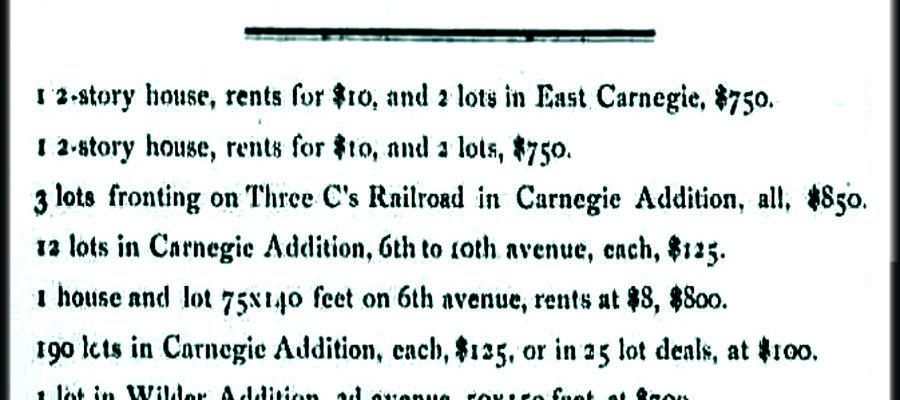Jan. 1, 1890 was a busy day for Johnson City. During all the hard times of the late 1800s, Johnson City had more desirable and more permanent work than any other town, large or small, in the South. Notwithstanding the bad weather, work steadily advanced on all the plants and factories, until they were on the threshold of prosperity’s open door.
In the next sixty days, the builders promised to complete one of the most magnificent and capacious hotels in the state. It would be known as the Carnegie Hotel, which was being erected by the Carnegie Land Company in their addition to Johnson City.
The company sold $50,000 worth of property in their addition along the east side of the city. One section of land was block No. 70 sold to A.B. Harris, president of the Southern Construction Company.
The block was initially described as being the ugliest allotment in the addition, fronting on North Main Street (Carnegie street, not the one in the downtown district) and 7th Avenue (later renamed Chilhowie Avenue).
Mr. Harris began building a hotel there that was said to have no equal in the South with respect to beauty. It was so situated where it could be seen for miles in every direction and overlooked all parts of the county.
Mr. Harris's intention was to have the hotel open by the time the ill-fated Three C's Railroad was built to the coal fields the upcoming fall. The building was to be the showiest and most conveniently arranged one that could be designed by architects and built regardless of expense and with the sole purpose of making it a summer and winter resort of high grade.

A Chicago company bought 40 lots in the Carnegie Addition that New Years' Day with plans to put up 12 business houses in the upcoming spring. A large force was put to work excavating for the $100,000 hotel, which was located at the corner of Broad Way (Broadway) and 2nd Avenue (Fairview).
Specifications called for the building to be brick, 150×140 feet and four stories high. The materials were already contracted for and were to be delivered immediately to the site. A decision was made to expedite the building of the hotel so as to get it fully operational as speedy as possible. It opened for business six months later on July 8, 1889.
General J.T. Wilder left town that week traveling to Birmingham to contract for the erection of the furnace and ordered a Mr. Cantwell to put a force of men at work that very week grading 40 acres of land on which to place the furnace.
Within 30 days the furnace was to be well underway providing they received the brick they needed. Engine No. 31, the first 3Cs locomotive ever sent to the city arrived that week and was fired up and run down to the track. John Bonan, an engineer formerly employed by the ETV&G Railroad, was put in charge of it and James Watson was assigned fireman.
A number of flat cars were ordered and as soon as they arrived, N.G. Scott & Co. begin the arduous task of laying track, which was needed because the rails had been ordered in advance.
Will M. Patton commenced building a dwelling in the Jonesboro addition. W.J. Palmer started a residence on Myrtle Avenue with plans to expedite it to completion. R.J. Lusk had his property laid off with plans to open Myrtle and Fairview avenues through it.
Will Harr tore down the old tobacco warehouse located at the corner of Buffalo and Jobe streets, which greatly improved the looks of things in the downtown area.
Indeed, early January 1890 was an eventful one for Johnson City.
